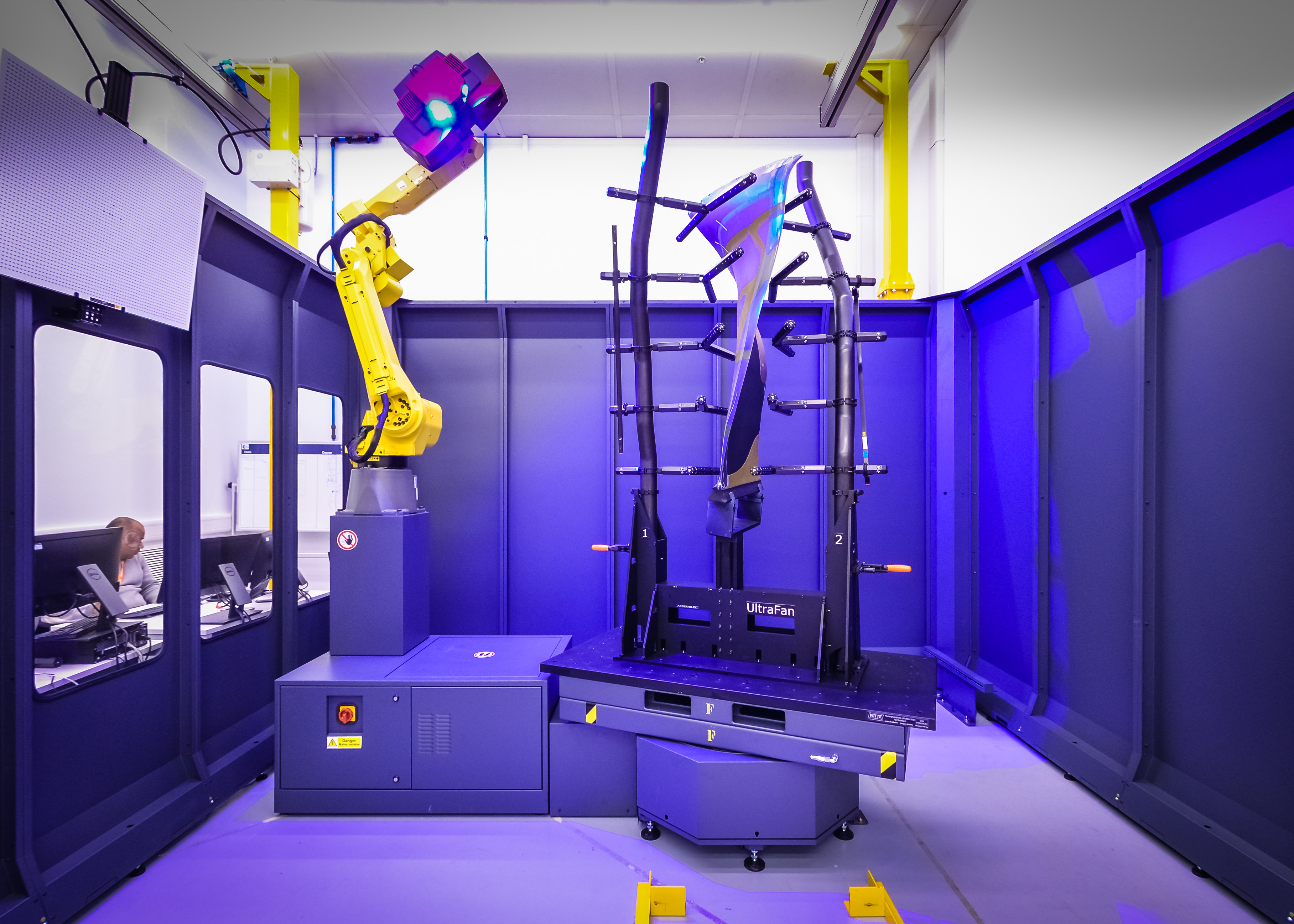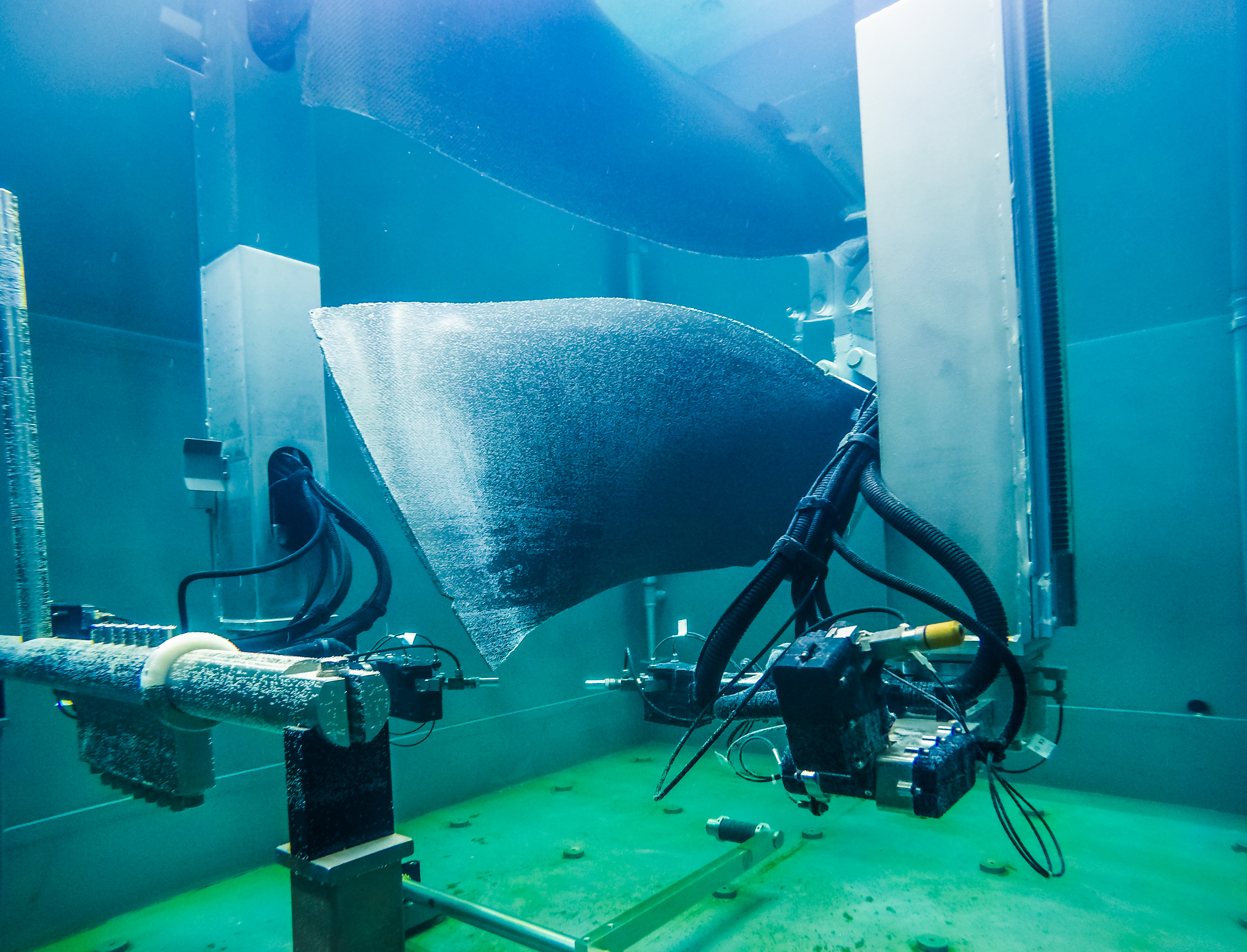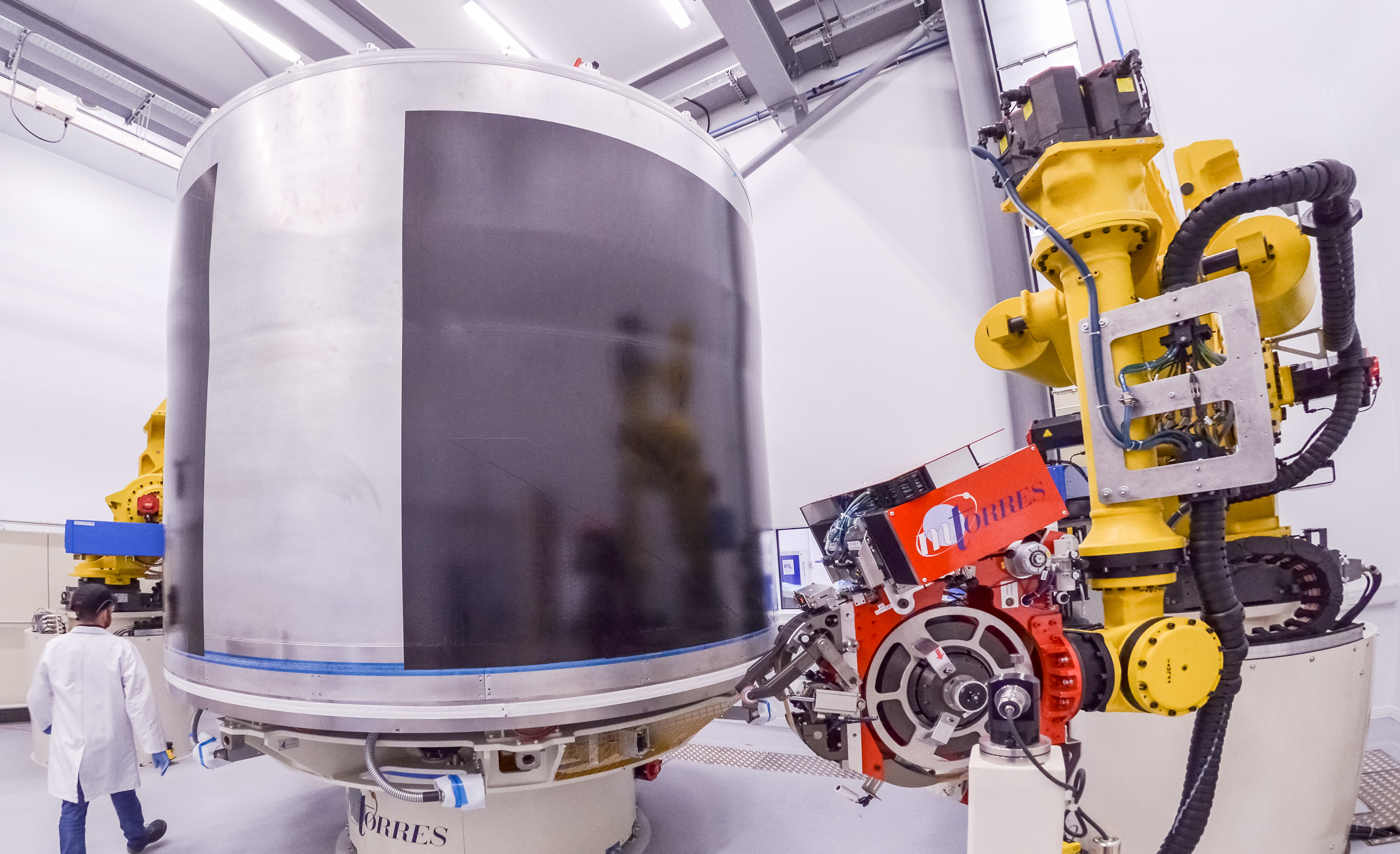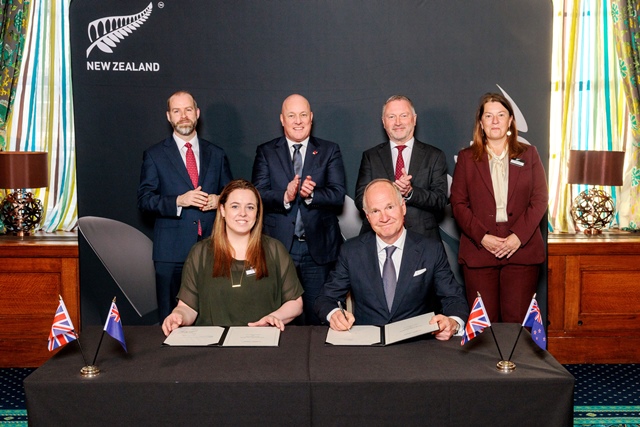Rolls-Royce opens composites facility in Bristol

Images
©
Rolls-Royce All rights reserved
The composite technology hub will develop fan blades and fan cases which significantly reduce weight in a jet engine, lowering fuel consumption and emissions.

The fan blades and fan cases being made at the facility are a feature of the Rolls-Royce UltraFan engine demonstrator, a revolutionary new engine design which will reduce fuel burn and CO2 by at least 25% compared to the first Trent engine.
The new facility will use low-energy, very low emissions processes and features state-of-the-art automated manufacturing methods and materials. It will maximise the use of raw materials, reducing waste. Rolls-Royce has pledged to achieve zero emissions at its operations and facilities by 2030.

Rolls-Royce has a crucial role in the transition to a net zero carbon economy and has a three-part environmental approach: reducing the impact of existing technologies; pioneering electrification in aviation; and working with the industry to accelerate the use of sustainable fuels.
Alan Newby, Rolls-Royce, Director, Aerospace Technology and Future Programmes said: “This incredible new facility exemplifies our commitment to creating cleaner, more efficient forms of power. Our highly-skilled employees will use the latest technology, materials and manufacturing techniques to develop components that will contribute to lighter, quieter, more powerful jet engines with fewer emissions.”
The facility will focus on carbon-fibre composites, which are used in the aerospace industry to reduce weight significantly. The lighter an engine is, the less fuel it burns, creating fewer emissions. A Rolls-Royce fan system made with carbon-fibre composites can save almost 700kg per aircraft, the equivalent of seven passengers and their luggage.

The fan blades are made by manufacturing techniques that build up hundreds of layers of carbon-fibre materials, pre-filled with state-of-the-art toughness-enhanced resin material. Heat and pressure are then applied, and each blade is finished with a thin titanium leading edge, which offers extreme protection against erosion, foreign objects and bird strikes.
From January, the facility will begin making fan blades and cases for the UltraFan demonstrator engine. The composite system for the UltraFan engine demonstrator is taking shape, and different parts have completed aerodynamic performance, bird-strike, containment, icing and water ingestion tests, as well as ground and flight testing.
Rolls-Royce has been involved in developing carbon-fibre technologies for several decades and already uses the material for parts within its engines. The new facility will take this technology to the next level.
It will benefit from manufacturing techniques that have been developed in partnership with the National Composites Centre in Bristol, and research conducted at the Rolls-Royce University Technology Centre at the University of Bristol, as well as several other universities and research centres based in the UK and in Europe.
.jpg)
The facility has secured 150 jobs in Bristol. An existing composite manufacturing technology facility, along with around 30 employees, has been transferred from the Isle of Wight. Since 2008, the UK Government has provided funding and support for Rolls-Royce composite technology research and development, including £7.4m of funding to support the Isle of Wight facility. The equipment from here has been moved and developed further at the new facility in Bristol.












